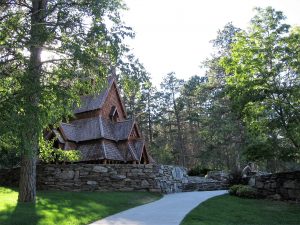Isaiah 14:32
What answer shall be given to the envoys of that nation? “The Lord has established Zion, and in her his afflicted people will find refuge” (NIV).
What will God’s afflicted people find in Zion? They will find refuge.
Tragically, Israel under the law covenant never found this. After Isaiah’s time, they experienced seventy long years of captivity after Jerusalem fell. Read Jeremiah’s wailings over the fallen city (the book of Lamentations) to sense their anguish. When they began to rebuild the temple, they wept (Ezra 3:12), and the walls of the city were still lying in ruins (Nehemiah 1). Even when Nehemiah led them to rebuild their walls, they were never free. By the time of Jesus, a dark deception clouded the minds of their leaders. So Jesus said to the Jews who had believed him, “If you abide in my word, you are truly my disciples, and you will know the truth, and the truth will set you free.” They answered him, “We are offspring of Abraham and have never been enslaved to anyone. How is it that you say, ‘You will become free’?” Jesus answered them, “Truly, truly, I say to you, everyone who practices sin is a slave to sin (John 8:31-34 ESV). They failed to bow before the Lord who offered them the greatest refuge.
Finally, great destruction came to the earthly Jerusalem, as the Lord Jesus prophesied (Matthew 24:1-3; 15-25) when the Romans destroyed their city under the command of General (later Emperor) Titus. The lament of Jesus over Jerusalem was fulfilled: “Look, your house is left to you desolate. For I tell you, you will not see me again until you say, ‘Blessed is he who comes in the name of the Lord.’” (Matthew 23:38-39 NIV). Weep for all those who try to find safety in an earthly Jerusalem.
Yet the church will surely receive this refuge. We are children of the Jerusalem that is from above (Galatians 4:26). We have come to the real Jerusalem. But you have come to Mount Zion, to the city of the living God, the heavenly Jerusalem (Hebrews 12:22a NIV).
- It will be a place of glory and joy. Then I saw a new heaven and a new earth; for the first heaven and the first earth had passed away, and the sea was no more. I also saw the holy city, the new Jerusalem, coming down out of heaven from God, prepared like a bride adorned for her husband. Then I heard a loud voice from the throne: Look, God’s dwellingis with humanity, and he will live with them. They will be his peoples, and God himself will be with them and will be their God. He will wipe away every tear from their eyes. Death will be no more; grief, crying, and pain will be no more, because the previous things have passed away (Revelation 21:1-4 CSB)
- It will be a place of holiness. But nothing unclean will ever enter it, nor anyone who does what is detestable or false, but only those who are written in the Lamb’s book of life (Revelation 21:27 ESV).
In this present age, the real church, a gathering of followers of Jesus Christ, imperfect as she still is, functions as this refuge for God’s people. The church is:
- A place of acceptance. Accept one another, then, just as Christ accepted you, in order to bring praise to God (Romans 15:7 NIV)
- A place of encouragement. And let us not neglect our meeting together, as some people do, but encourage one another, especially now that the day of his return is drawing near (Hebrews 10:25 NLT).
- A place of comfort. For as we share abundantly in Christ’s sufferings, so through Christ we share abundantly in comfort too (2 Corinthians 1:5 ESV).
- A place of peace. Let the peace of Christ rule in your hearts, since as members of one body you were called to peace. And be thankful (Colossians 3:15 NIV).
The task before us is to show to those not yet believers the glory of our Rock of Refuge, the Lord Jesus Christ. Do you know Him? It matters not where you are today. We are concerned about you, that you have the hope of glory in Jesus Christ. And we want you to know joy and peace as you trust in him now. We invite you to our Shelter, the confident expectation of sharing eternal life in Christ!
Grace and peace
David

 Ruth 4:9-12
Ruth 4:9-12 Ruth 2:8-9
Ruth 2:8-9